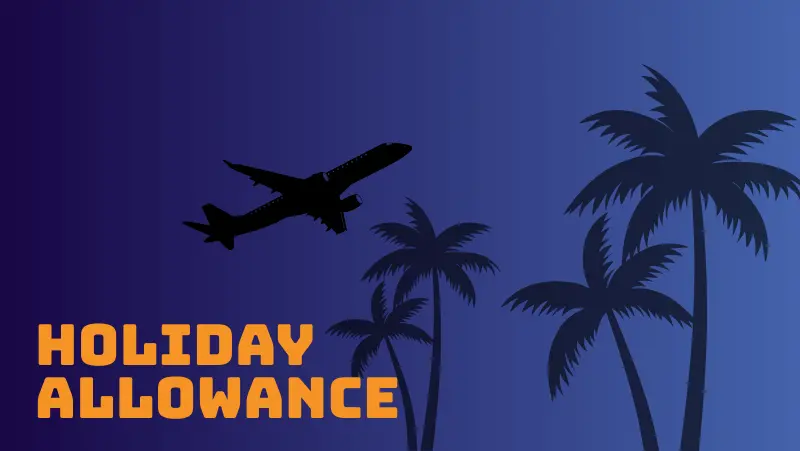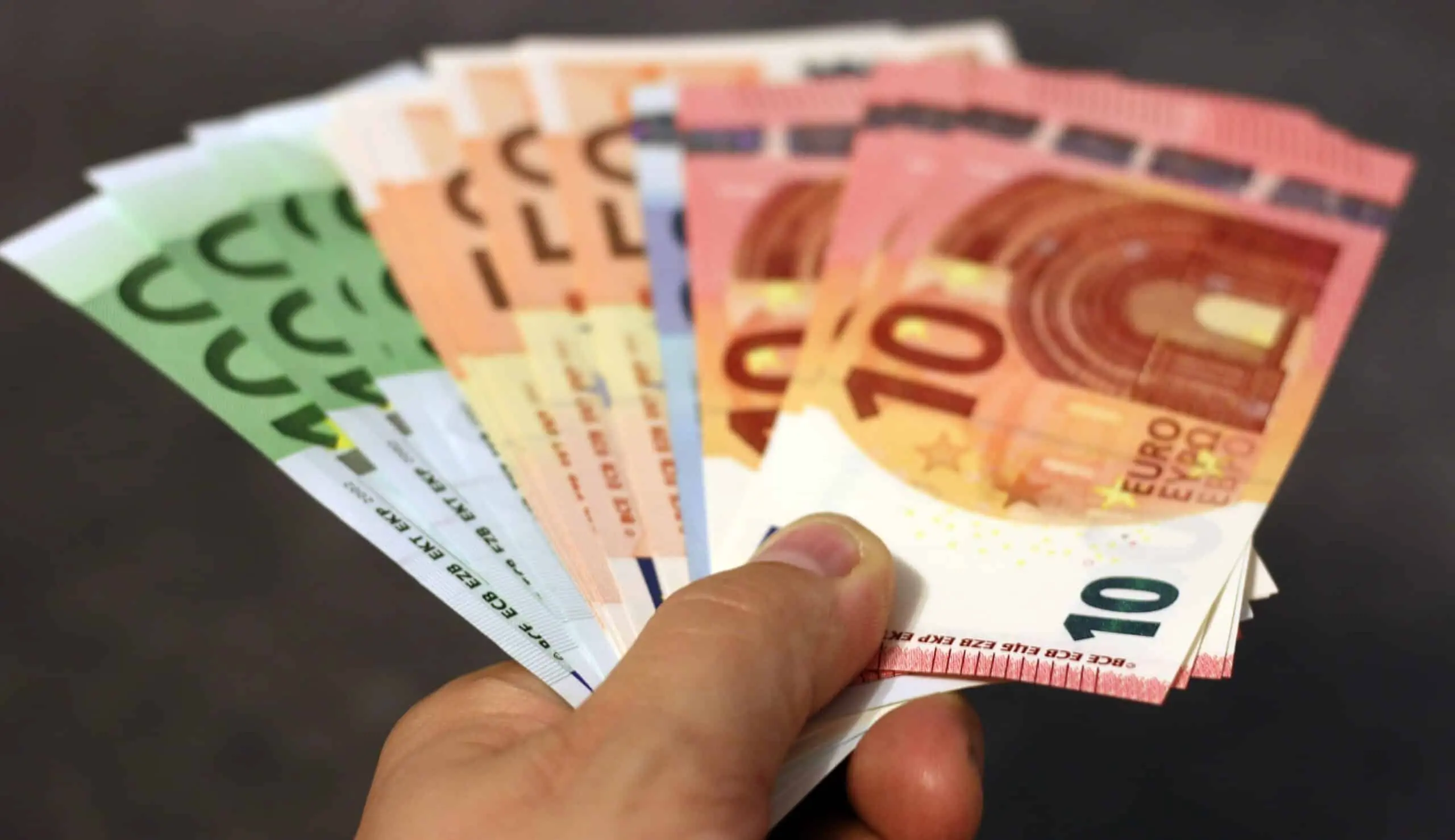What Is Holiday Allowance (Vakantiegeld)? [2025]

Understanding Holiday Allowance in the Netherlands
In the Netherlands, the concept of holiday allowance, or ‘Vakantiegeld’, plays a significant role in the financial landscape for both employees and employers. This unique aspect of Dutch employment law is essential for ensuring that workers have additional funds for vacation periods.
Holiday allowance is a mandatory financial benefit in the Netherlands. Introduced to encourage workers to take vacations, it constitutes an additional payment on top of the employee’s salary. This allowance typically amounts to 8% of the employee’s gross annual salary.
Blue Lynx steps to the rescue to help you understand the Dutch holiday allowance and your vacation days. We’ve covered the most important bits below.
(This article has been updated in 2024 to reflect the latest information in the ABU CLA.)
What Will Be Covered in This Article:
- What is holiday allowance?
- When is it paid?
- How is it calculated?
- Can my employer refuse to pay holiday allowance due to COVID-19?
- Is it taxed?
- Does everybody get it?
- How can you spend it?
- How many vacation days you get?
- Your EU working rights
It is mandatory for every employer in the Netherlands to pay their staff an extra sum of money on top of their gross salary. This sum is called ‘Vakantiegeld’ in Dutch, roughly translated as ‘Holiday/Vacation Money’. It’s also sometimes called the 13th wage, as it is almost the equivalent to an extra month salary. Most people are either directly employed by an organisation or a member of the Collective Labour Agreement (CLA) as a temporary worker.
What’s new?
As of January 1st 2020, the ABU CLA (Collective Labour Agreement for Temporary Workers in the Netherlands) has amended their vacation allowance legislation. All temporary workers have an increase in their vacation allowance from 8% to 8.33%.
Blue Lynx’s contracting staff have been notified of this change as their employment terms and conditions obey the ABU CLA. We have also flagged this change in legislation to our clients.
Important: If your employer is not a member of the ABU CLA, you are entitled to a minimum payment of 8% of your gross annual salary (per Burgerlijk Wetboek, Dutch Civil Law).
The holiday allowance should appear on your payslip in May. Why? When it was first introduced in the Netherlands, holiday pay was an incentive for employees to go on vacation. Getting the extra money in May meant they could plan their summer leave for the months between June and September.
The majority of companies pay the Vakantiegeld in May, except when:
- Your employment naturally ends with a company before May, the accumulated vacation money will be paid within your last salary payment or the following month.
- The employee’s contract is terminated before May
- The employee has an agreement for vacation money to be paid early
- The employee receives their vacation money every month
How Is the Holiday Allowance Calculated?

Your vacation allowance is 8% of your gross salary.
The gross amount of holiday pay is calculated on a pro-rata basis. This means it depends on how long you have been employed.
It is calculated by taking into account how many days you worked, holiday leave, public holidays, sick leave, and more.
Here are some example calculations
If your Holiday Allowance is 8%
Gross monthly salary € 3,000.00
Gross annual salary excluding 8% € 36,000.00
8% vacation allowance: € 2,880.00
And if it’s 8.33%
Gross monthly salary € 3,000.00
Gross annual salary excluding 8.33% € 36,000.00
8.33% vacation allowance: € 2,998.80
And this will be paid on top of your monthly salary, so you can start planning the long-awaited trip to your favourite destination, yay!
If the vacation money is paid to you monthly instead, the calculations will look like this:
Gross monthly salary € 3,000.00
8% vacation allowance, accrued per month € 240.00
Gross monthly salary € 3,000.00
8.33% vacation allowance, accrued per month € 249.90
Can My Employer Refuse to Pay My Holiday Allowance Because of COVID-19?
Your employer is obliged to pay the 8%/8.33% holiday pay on top of your gross annual salary even during COVID-19. An exception to this rule might be if you have previously signed an agreement with your employer to have your holiday bonus postponed in order to save the business. However, you must receive your holiday allowance at a later stage. Important: your holiday allowance can be delayed only if you agree to this in writing.
Is the Holiday Allowance Taxed?
Sadly, the holiday allowance pay, just like your salary, is subject to tax. How much? It depends. A special tax rate applies to your holiday pay, as well as to other parts of your salary that are paid only once per year. This means the amount of holiday allowance you get after taxes depends on that rate and on the size of your salary.
To learn the exact amount, speak directly to your employer or HR.
Does Everybody Get Paid Holiday Allowance in the Netherlands?
In certain cases, it could get reduced or eliminated if your wage is three or more times bigger than the minimum salary in the Netherlands. Either way, it will be stated in your contract.
What You Don’t Get Holiday Allowance for:
The employee is not entitled to any holiday allowance from the end of year bonuses, dividends from profit-sharing schemes, other bonuses, etc.
How Can You Spend the Vakantiegeld?

Enjoy spending your holiday allowance on a trip or something else.
How Many Vacation Days (Vakantiedagen) Do You Get?
If you work full-time (i.e. 5 full days a week), then the legal minimum number of days paid leave that you are entitled to, is 20, equivalent to 4 weeks of paid annual leave.
However, it is common practice for employers in the Netherlands to offer 25 days of paid leave, on top of 10 public holidays in the Netherlands.
Please note that by law, you can’t swap these days for monetary compensation. Most importantly, your vacation days have an expiration date. This means your paid days off accrue over time and you have to take them within 6 months. This measure is introduced to keep the work-life balance but there are some exceptions. You might be unable to use your paid days in that period because of illness or work overload. In this case, you may negotiate with your employer to extend the 6-month rule.
Dutch Employees’ Paid Leave Is Protected by EU Law

EU working laws apply for Dutch employees.
The Netherlands is a state member of the European Union so employees EU rules and regulations apply in regards to how much you can work and rest. These laws are in the EU Working Time Directive of 2003 (2).
A summary of the key rights employees in EU countries (including the Netherlands) have:
- a minimum daily rest period of 11 consecutive hours in every 24
- a rest break on any working day longer than 6 hours
- an uninterrupted 24-hour rest period every 7 days, in addition to the daily 11 hours
- at least 4 weeks paid annual leave
- a maximum average working week of 48 hours, including overtime, over 7 days
- normal night work should be no more than 8 hours on average in any 24 hours
Having said this, it is more relevant to pay attention to Dutch law, because Dutch employment law typically goes above and beyond the minimums stipulated by the EU directives. Furthermore, collective labour agreements (CAOs) are industry standards, so it is also important to know which CAO (if any) applies to your situation. Some CAOs can even stipulate terms that may appear to overrule Dutch Law or the EU directive. This is often due to the unique nature of some jobs (for example, the amount of rest a pilot is entitled to).
Always Read Your Contract
Always check your contract/employment agreement for any details regarding your holiday allowance and annual leave days. Although the most common practice is to get the holiday allowance as a one-time payment. Yet, some employers spread it throughout the year.
Are you working or looking for a job?
Blue Lynx offers help and advice to international job seekers and contractors (temporary workers) in the Netherlands. All you need to do is register your CV on our website. It’s free.
Are you looking for employees?
Blue Lynx is a leading recruitment agency in the Netherlands. Apart from talent acquisition, we assist our business partners with HR services such as contracting and employee leasing.
Have a Question?
As Dutch Employment Laws are our forte, feel free to contact us for a consultation.
We will also be covering the topic of sick days, wages, and more. So, stay tuned for more relevant and up-to-date information on employment in the Netherlands.
Sources
1. Dutch Government website on Holiday Allowance (Vakantiegeld) (in Dutch)
2. Summary of EU Working Time Directive 2003 laws on working time
3. Origins of the Holiday Allowance (in Dutch)
